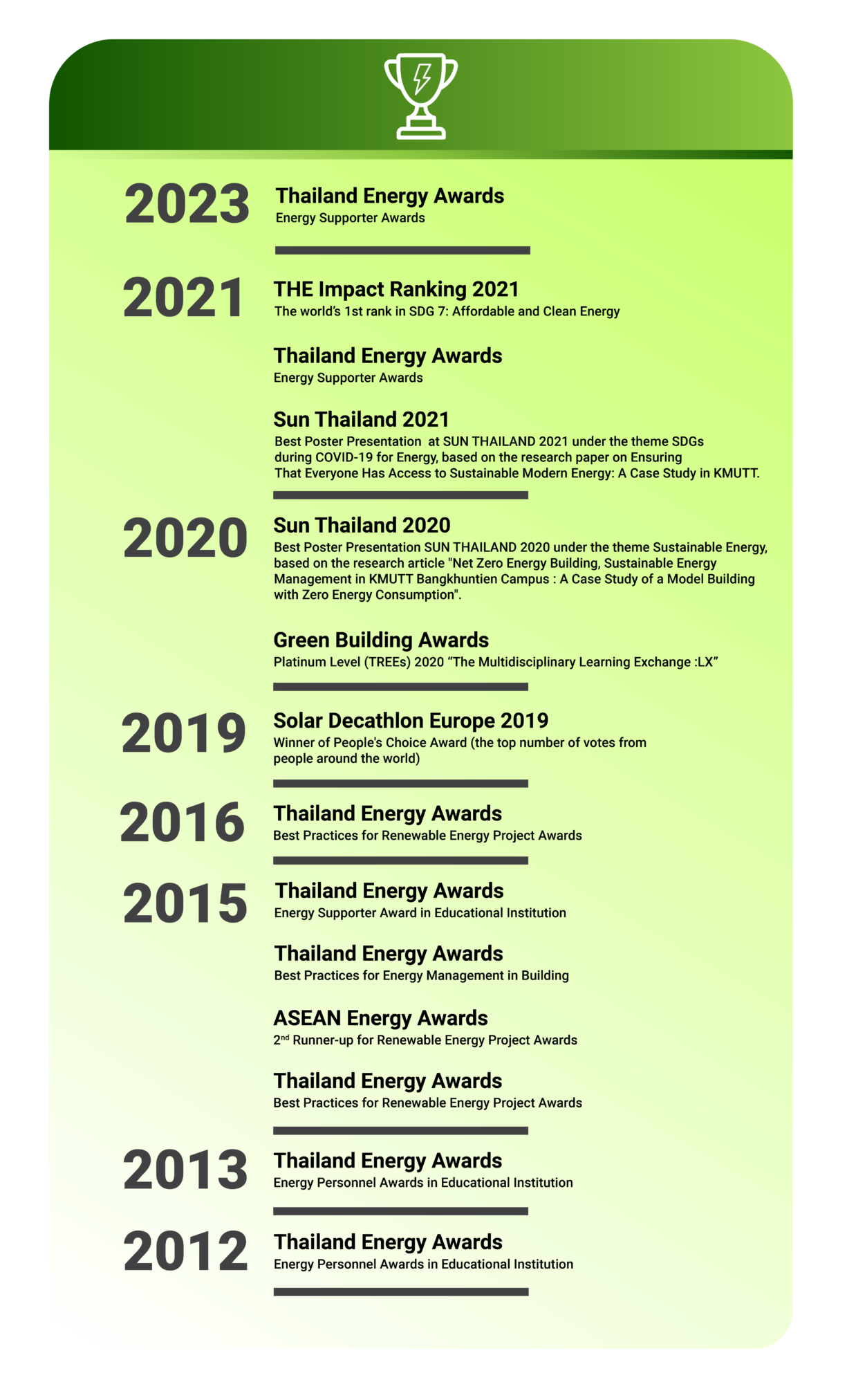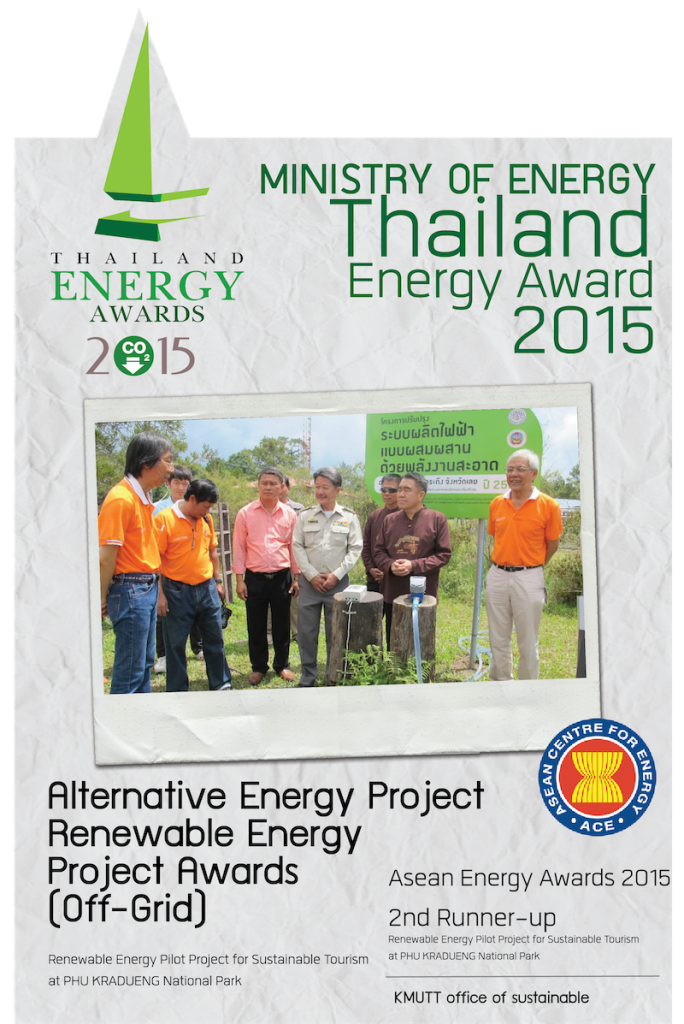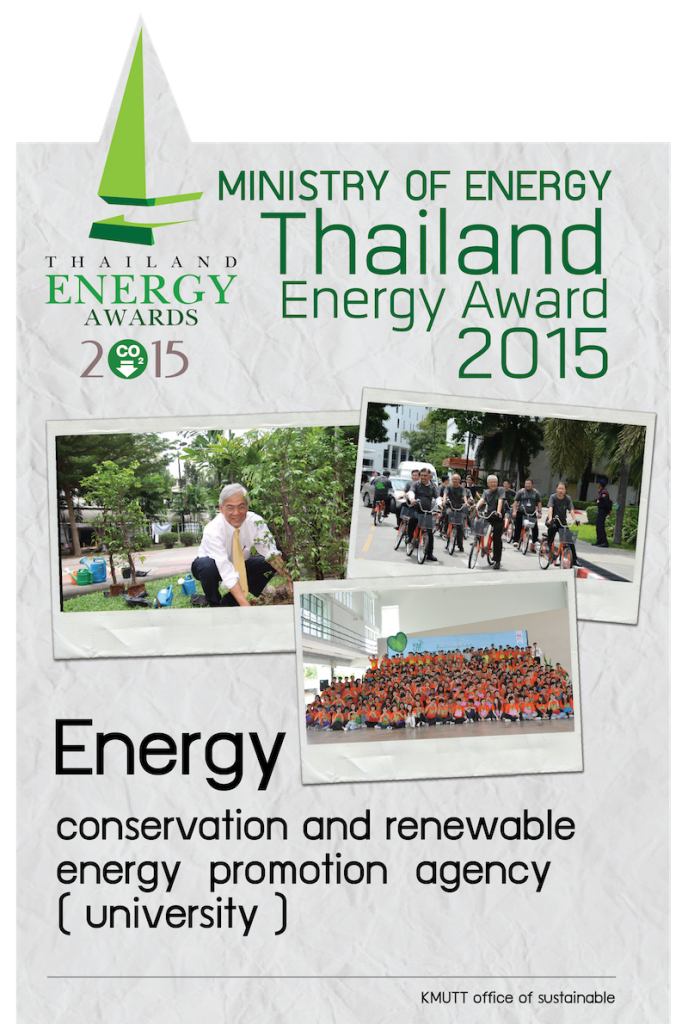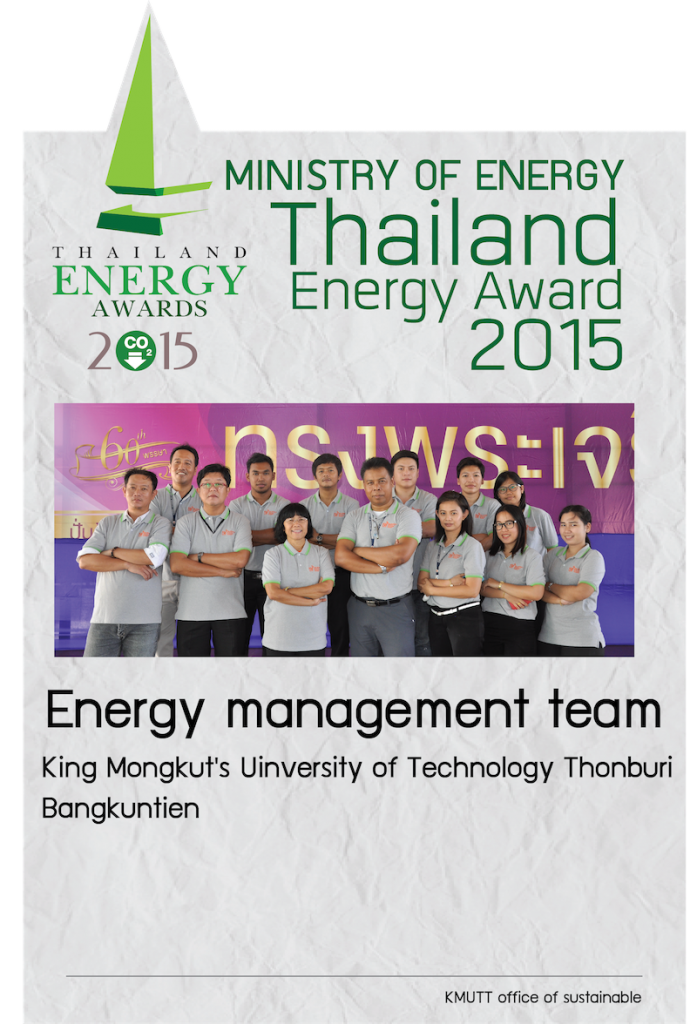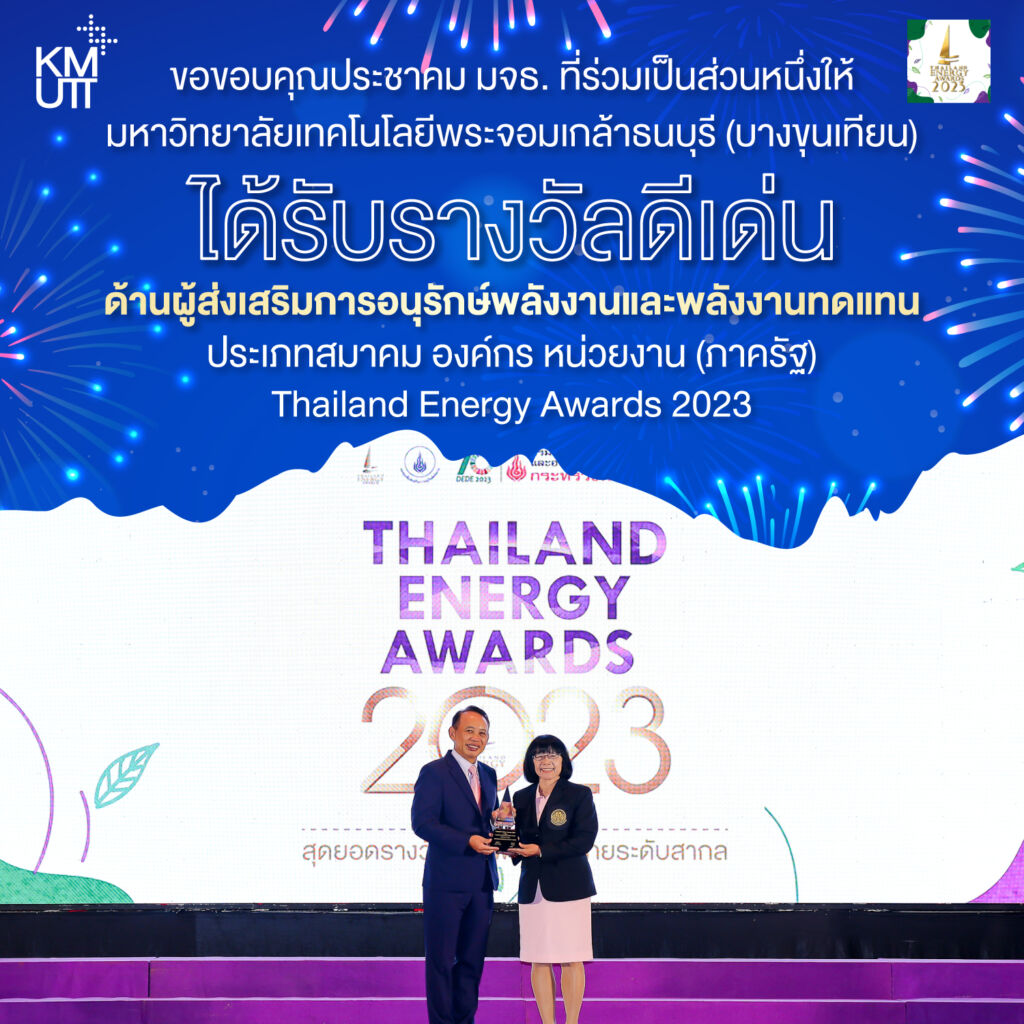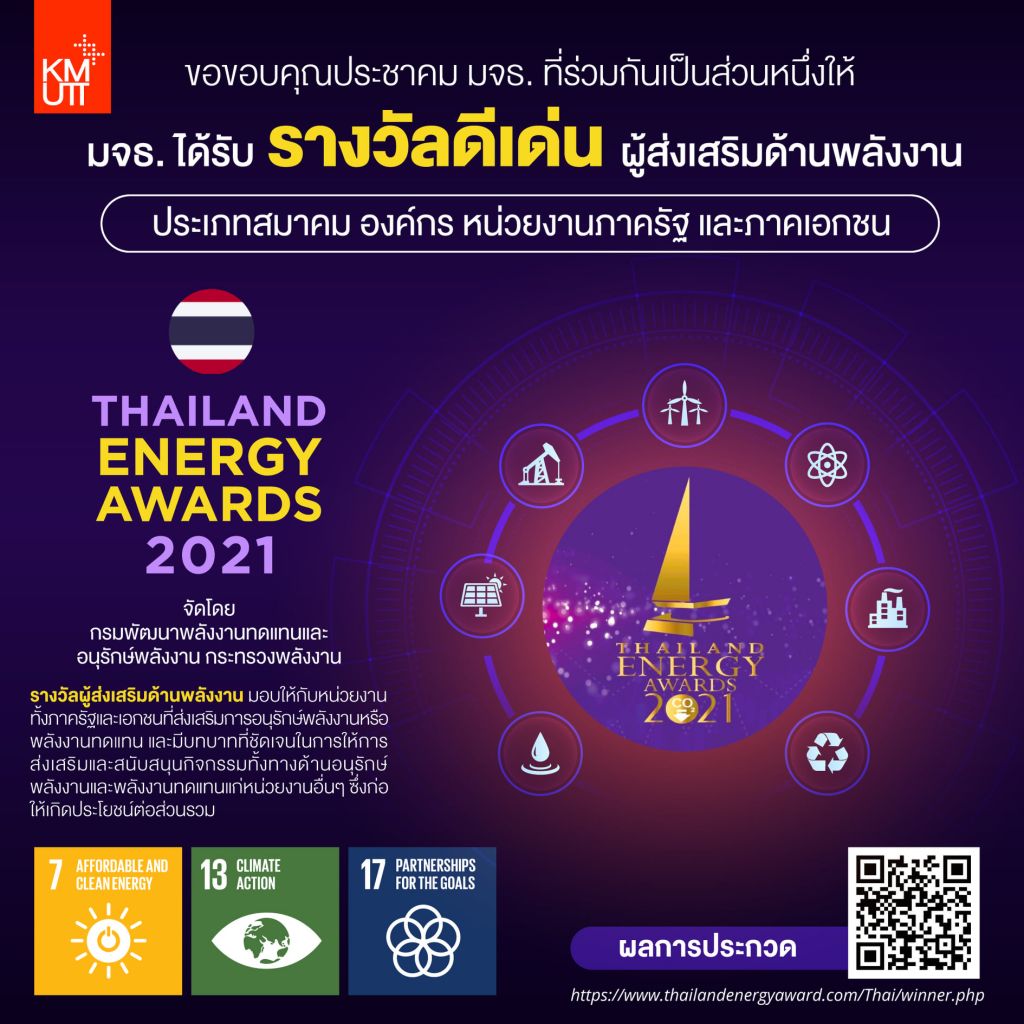Electrical Usage Reduction
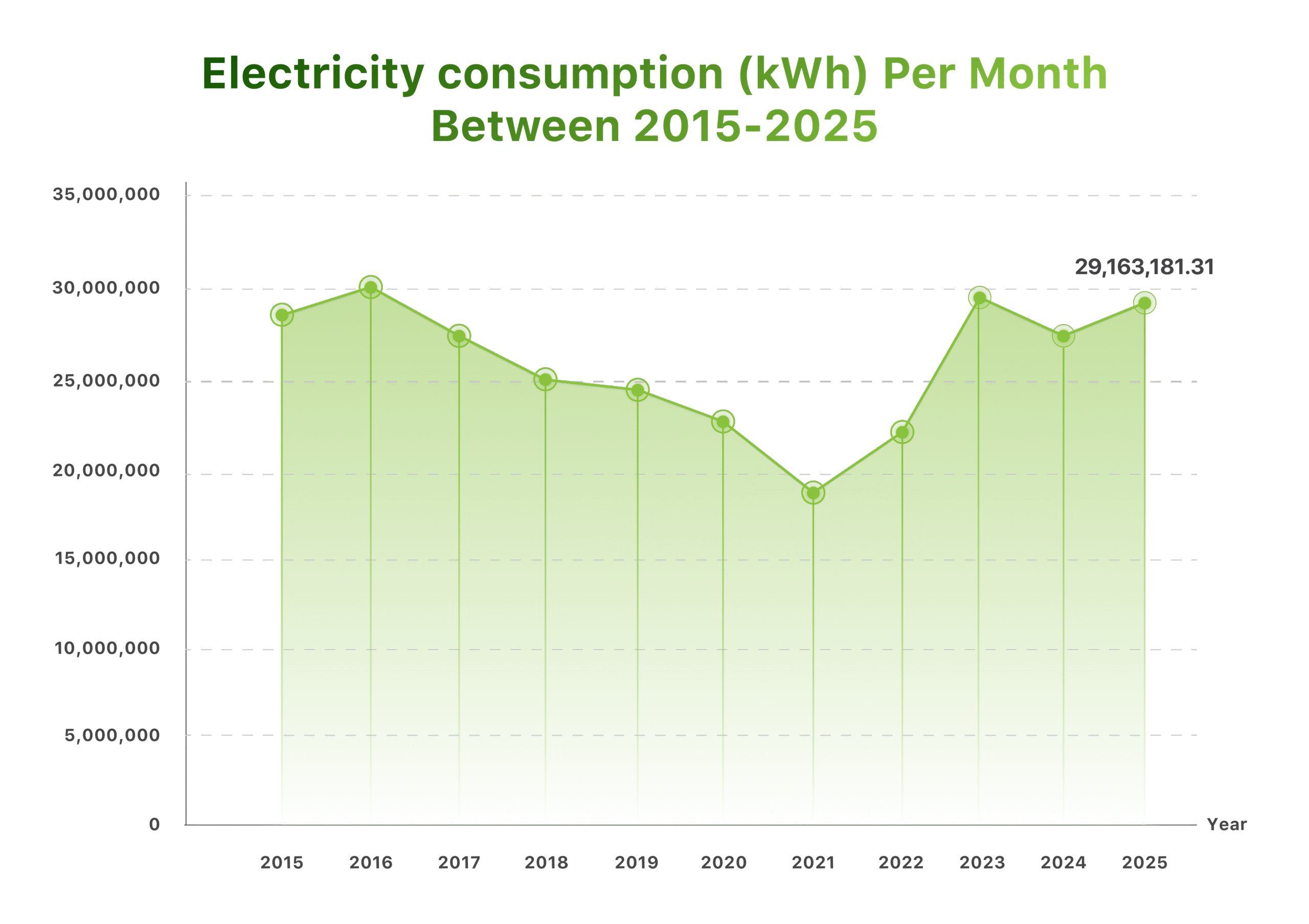
Targets: 20% reduction on energy usage (capita/year) by 2024 compared to 2006 baseline.
Current Status: In 2025, 23.35% reduction on energy usage (capita/year) compared to 2006 baseline.
This line graph presents Electricity Consumption at KMUTT between 2015 and 2025. The general view shows that electricity consumption has continued decreasing rapidly from 27,866,788 kWh in 2015 to 29,163,181.31 kWh in 2025. This dramatic decrease represent that university is a high concern for saving electricity and energy conservation under the concepts of PEOPLEWARE, HARDWARE and SOFTWARE.
For Peopleware, it refers to the human role in an electricity saving and conservation. KMUTT announce Energy policy 2018 that refer from THAILAND’S ENERGY 4.0 to all student and staff. This policy aim to persuade people at campus for a better electricity consumption behavior. Also, we create various successful events which defined by the number of people who attend such as 60+ Earth hour event , Energy Day at KMUTT and World Environment Day. Moving to Hardware, the implementation of replace inefficient equipment with energy efficient devices such as smart light and water sensor, LED lighting and inverter chiller continually working to promote energy efficient within campus. Furthermore, KMUTT has set the target of increasing alternative energy like Solar energy (rooftop and floating) instead the used of fossil fuel during peak load demand. Finally, is Software, a set of instructions, data or programs used to operate Building Automation System for studying trend of energy consumption and power demand profile.
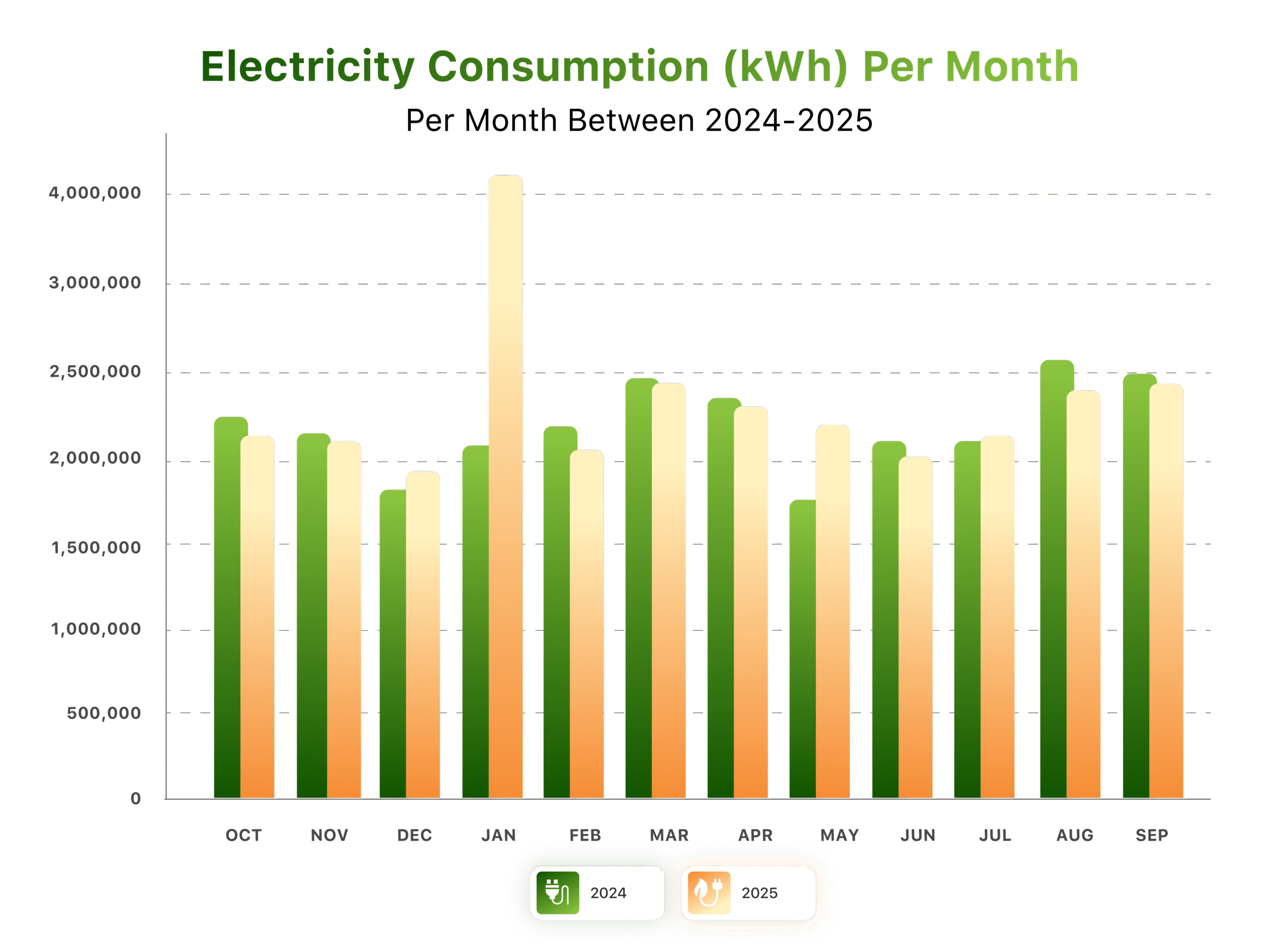
In summary, annual electricity usage at KMUTT reflects the combined demands of academic excellence, research innovation, and campus life. While the demand is naturally high due to the scale and nature of its operations, KMUTT has consistently demonstrated leadership in energy management. Through renewable energy integration, energy-efficient infrastructure, smart building systems, and community engagement, the university has made significant progress toward reducing its environmental impact and building a sustainable energy future. In total, during the year 2025, KMUTT recorded an overall electricity consumption of 29,163,181 kilowatt-hours (kWh), reflecting both the scale of its operations and its ongoing efforts to optimize energy performance across the entire campus.
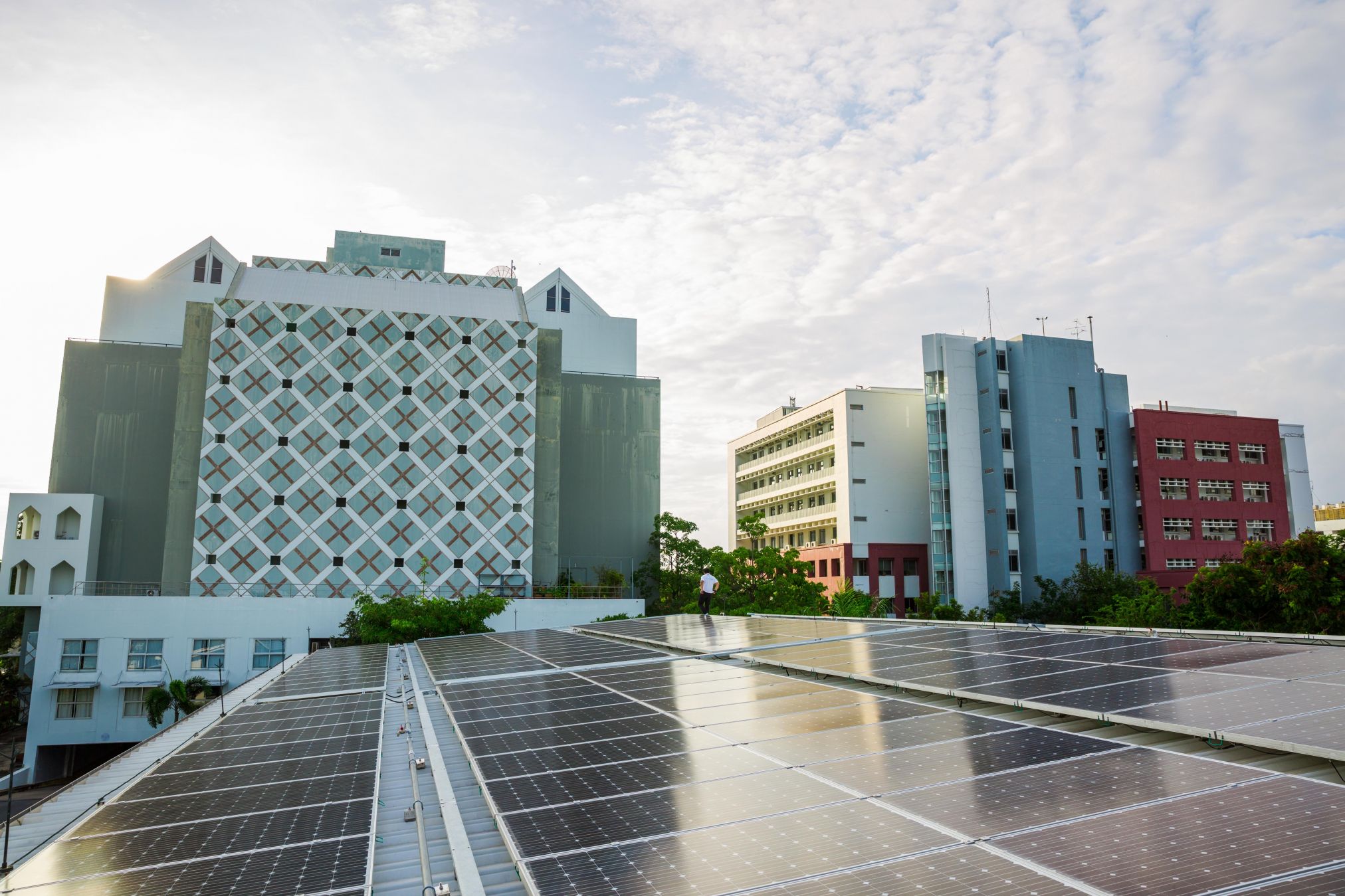
The continuously decreasing of electricity usage within campus is guaranteed by Thailand Energy Awards as following:
